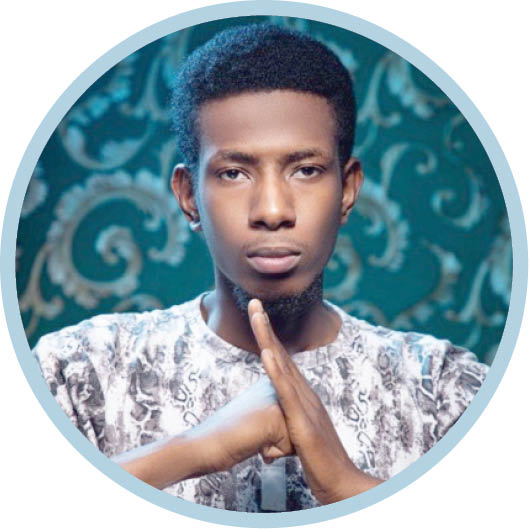I project the North with Hausa rap — Geeboy
Abdullahi Abdullahi, popularly known as Geeboy, is a musical artist born on January 3, 1996 in Kaduna State and raised there. He started music in 2011 with the Yaran North Side (YNS). In this interview, Abdullahi, a student of Urban and Regional Planning at the Ahmadu Bello University Zaria, speaks about his inspiration from Eminem […]

Geeboy
Abdullahi Abdullahi, popularly known as Geeboy, is a musical artist born on January 3, 1996 in Kaduna State and raised there. He started music in 2011 with the Yaran North Side (YNS). In this interview, Abdullahi, a student of Urban and Regional Planning at the Ahmadu Bello University Zaria, speaks about his inspiration from Eminem and John Legend, among other issues.
How did you come about your stage name?
My mother had always wanted me to be a good boy, as the word “ji” implies in Hausa; then I decided to adapt it as my stage name.
- COVID-19: UK strain variant not found in Nigeria yet —NCDC DG
- COVID-19: A Second national lockdown is needless!

How would you describe your art?
I am a passionate rapper, R&B and pop singer. My art is communicable, I rap, sing and write songs about life and love.
How would you describe your journey into the music industry?
I started my career in 2011 with my friends, we believed if other tribes could sing and rap using their mother tongues, then so could we give Hausa rap, R&B and pop a try. Luckily we were opportune to have a musical studio at home (YNS Studios Kaduna) which gave us the opportunity to showcase our talents.
I was inspired by Akon, P-Square, Lil Wayne, Eminem and John Legend. I have recorded and released some songs. They include Love You Baby, Daina Bina, Yar Fara Ft Feezy, Something, and Qusa Ft Shamsy. The others are Masoyiya Ta, Saboda Ke, and Mai Kudi.
In December 2015, I performed at KADAMFEST (Kaduna Music Festival), on the same platform with the likes of Yemi Alade, Ice Prince, MI, 2Face Idibia and many others. I also performed with Yaran North Side artists like Dj AB, Feezy, Lil Prince and Mr Kebzee.
My efforts have also been recognized by members of the public. In December 2018, I received an award from Paki’s Collection for the hit song, Daina Bina. Also in 2018, I received a merit award from the Department of Urban and Regional Planning, ABU Zaria as the “Artist of the Year”.
It is believed that for you to be a commercial success, you have to be in Lagos, do you believe that?
Well, I know that Lagos used to be the most recognised place in terms of music marketing in Nigeria but as time went by and technology evolved, things changed. I now believe one can still opt for a successful music career here in the North, and to rise to an extent without going to other states with the way the Internet brings change to the music business in Nigeria. Music can now be shared digitally and can also be commercially sold internationally and nationally from within every state in Nigeria. I also believe that with the support of the society and the government, we can make it here in the North.
The entertainment industry is noted with a few making huge gains, how does music pay the bills for you?
We thank God for his continuous blessing as music has taken me to places I never dreamt I would go to. It changed me from nobody to somebody. The entertainment industry does pay the bills, but not to the extent people think.
Every venture has it highs and lows, what are yours?
My journey has just begun, I’m now a recognized Nigerian artist verified on international musical platforms like Spotify, Apple, YouTube and Google Music. In the next five years, I see myself as a multiple times Grammy Awards, multi-talented, legendary Nigerian musician, known globally by God’s grace.
More people from the North are doing contemporary music, why so?
Majority choose contemporary music because of having the mindset of operating globally, but I believe since Hausa is widely spoken in many parts of the world, including Hausa in contemporary music will also pay just like Yoruba, Igbo, Igala musicians in Lagos. As Hausa language spreads globally, that is how Hausa R&B, Pop and Rap songs would be recognized across the world.

Why didn’t you choose traditional music like the legendary Mamman Shata?
We choose contemporary music because we also want to be unique in the North. In ancient times, it was always traditional music here and there, like Mamman Shata and the rest. I suppose we are the first to sing traditional songs in a contemporary manner, because we want the North to have professional music standard.
